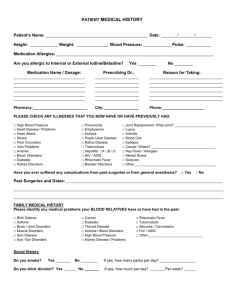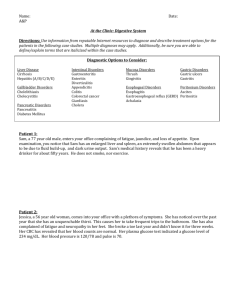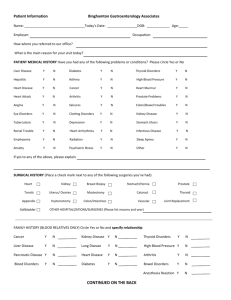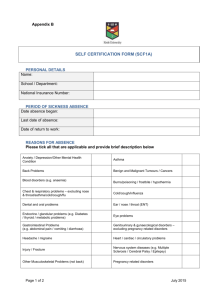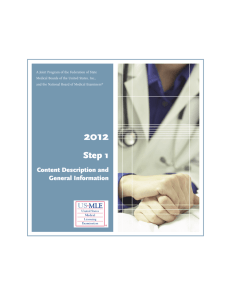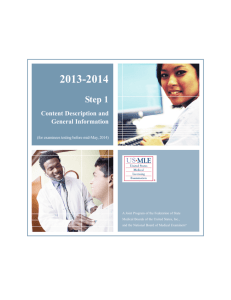FOM 2311 BLOOD AND BODY FLUIDS DISORDERS
advertisement
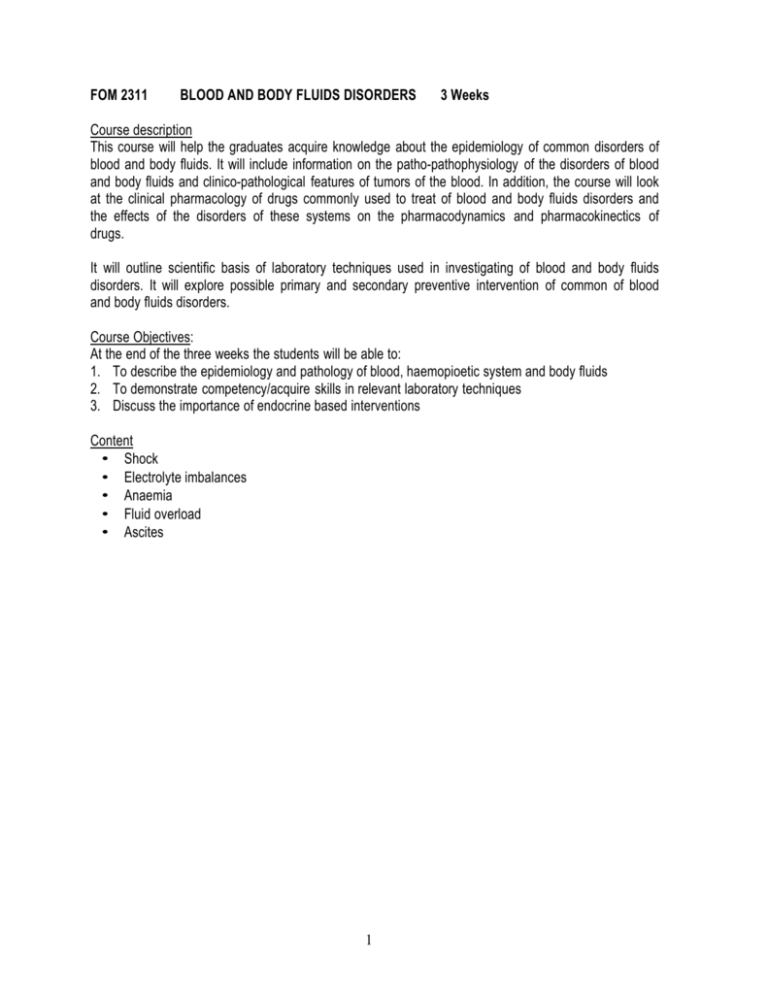
FOM 2311 BLOOD AND BODY FLUIDS DISORDERS 3 Weeks Course description This course will help the graduates acquire knowledge about the epidemiology of common disorders of blood and body fluids. It will include information on the patho-pathophysiology of the disorders of blood and body fluids and clinico-pathological features of tumors of the blood. In addition, the course will look at the clinical pharmacology of drugs commonly used to treat of blood and body fluids disorders and the effects of the disorders of these systems on the pharmacodynamics and pharmacokinectics of drugs. It will outline scientific basis of laboratory techniques used in investigating of blood and body fluids disorders. It will explore possible primary and secondary preventive intervention of common of blood and body fluids disorders. Course Objectives: At the end of the three weeks the students will be able to: 1. To describe the epidemiology and pathology of blood, haemopioetic system and body fluids 2. To demonstrate competency/acquire skills in relevant laboratory techniques 3. Discuss the importance of endocrine based interventions Content • Shock • Electrolyte imbalances • Anaemia • Fluid overload • Ascites 1 • • • • • • Oedema Leukaemia Bleeding/coagulation disorders Haemoglobinopathies Thrombo-embolic disorders Investigative procedures Duration of the course: 3 weeks 3 CU • Lecture hours 5 hours • Clinical hours 5 hours • Tutorial hours 30 hours • Practical hours 10 hours • Self study hours 30 hours Total 5 CH 5 CH 15 CH 5 CH 15 CH 45 CH Methods of delivery Lectures, Clinical sessions, Tutorials, Practical sessions, Post mortem demonstrations, Seminars, Self study session Methods of assessment Continuous assessment (twice a week), Progressive assessment 3 hours written examination after the 3 weeks, Summative examination (3hour exam) at the end of the semester, Practical examination (3hours) or oral examination at the end of the semester Infrastructure and resources available 1. Tutorials rooms 2. Lecture theater with microphone 3. Laboratory space 4. Departmental Book bank 5. Albert Cook library 6. Computers and computer rooms 7. Departmental LCD projector 8. Post mortem demonstration room 9. Mortuary space 10. Pots Teaching staff available for this course 1. Dr Najjuka 2. Dr Beatrice Achan 3. Dr Buwembo 4. Dr Dan Wamala 5. Dr Joseph Turyabahiika 6. Dr Norah Mwebaza 7. Dr Fred Ndoboli 8. Dr Kyalyemenya 9. Dr Othieno Emanuel 10. Dr Barungi 2 11. 12. 13. 14. 15. 16. 17. 18. 19. Prof Paul Waako Dr Hawa Nalwoga Prof Henry Wabinga Dr Odida Michael Dr Kalungi Sam Dr Lukande Robert Dr Onzivua Sylvester Dr Nsereko Mukasa Dr Male- Mutumba 3




